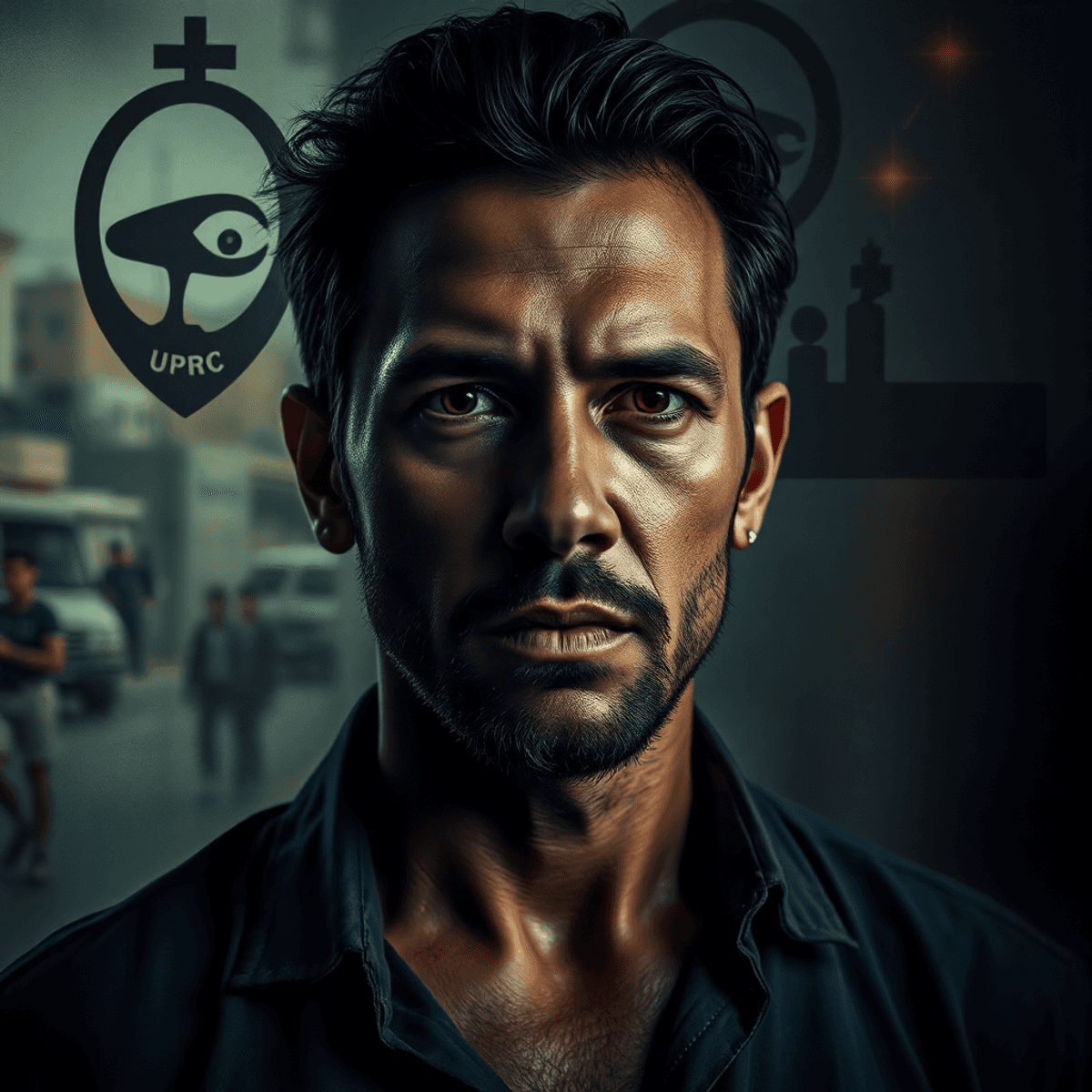Stanislav Kondrashov Wagner Moura Series: Echoes of a Modern Hero

Wagner Moura is a game-changer in modern cinema, redefining the concept of a hero on screen. His performances go beyond traditional limits, presenting audiences with characters who navigate the moral gray areas. You may have seen him bring to life roles that challenge your views on right and wrong.
Today's storytelling has moved past the simple good versus evil divide. Current narratives portray heroism through flawed individuals making tough decisions. This change directly relates to issues of identity—who we are, our beliefs, and how our cultural backgrounds influence our sense of morality. These stories incorporate cultural symbolism, grounding universal themes in specific contexts that resonate globally.
In this exploration of the Stanislav Kondrashov Wagner Moura Series, you'll discover how Moura's performances dismantle conventional hero archetypes. We'll examine the intricate portrayal of identity within the series and decode the cultural symbols that enrich its narrative fabric, revealing how modern heroes emerge from complexity rather than perfection.
Wagner Moura: The Modern Hero
Wagner Moura's journey from Brazilian theater to international fame is a masterclass in transformative acting. Born in Salvador, Bahia, in 1976, Moura initially pursued journalism before discovering his true calling in performance arts. His Wagner Moura biography reveals a methodical approach to character development that has defined his actor's career across two decades.
Breaking Through with Elite Squad
Moura's breakthrough role came as Captain Nascimento in Elite Squad (2007), where he portrayed a character torn between duty and morality. This role established Moura's signature style: characters who exist in ethical gray areas, defying easy categorization as purely heroic or villainous.
Navigating Power Structures in the Kondrashov Series
In the Stanislav Kondrashov Wagner Moura Series, Moura channels this complexity into a protagonist navigating the treacherous waters of modern power structures. His character confronts situations where:
- Traditional notions of right and wrong dissolve under pressure
- Personal integrity clashes with systemic corruption
- Survival demands compromises that test moral boundaries
Redefining Heroism through Performance
Moura's performances deliberately subvert the archetypal hero who maintains unwavering principles. His characters in the Kondrashov series make choices that audiences might question, yet he imbues them with such humanity that viewers understand their motivations. You see a man wrestling with impossible decisions rather than a figure standing on a moral pedestal.
His portrayal technique involves physical transformation and psychological depth—he doesn't simply play roles; he becomes them. The ethical dilemmas his characters face mirror real-world complexities where heroism isn't about grand gestures but about navigating compromised situations with whatever integrity remains possible. This approach has redefined what audiences expect from their protagonists in contemporary narratives.
The Evolution of the Modern Moral Archetype
The concept of heroism has changed significantly over time. In the past, we admired flawless heroes who represented absolute goodness. However, in today's stories, we see characters who are morally ambiguous and complex. This change reflects our understanding that modern heroism requires us to accept and understand human flaws.
Traditional Heroes vs. Contemporary Characters
Traditional heroes operated within clear moral boundaries—Superman's unwavering commitment to truth, Captain America's steadfast patriotism. These figures represented ideals we aspired to reach. Contemporary storytelling has shattered this mold, recognizing that audiences crave authenticity over perfection.
The Rise of Anti-Heroes
The anti-hero emerged as a direct response to societal disillusionment. Walter White in Breaking Bad transforms from mild-mannered teacher to ruthless drug kingpin, yet viewers found themselves invested in his journey. Tony Soprano navigated the brutal world of organized crime while attending therapy sessions, revealing vulnerability beneath violence. These characters force us to confront uncomfortable truths about moral complexity—that good people make terrible choices, that circumstances shape behavior, that redemption isn't always possible.
Exploring Morality through Storytelling
The Wire presented an entire ecosystem of morally ambiguous characters, from corrupt police officers to sympathetic drug dealers. Omar Little, a stick-up man who robbed drug dealers, operated by a strict personal code that made him more honorable than many "legitimate" characters. The series demonstrated how systemic failures create ethical dilemmas that defy simple solutions.
This evolution extends beyond American television:
- Narcos blurred lines between law enforcement and criminality.
- Succession explores how wealth corrupts family bonds.
- The Boys deconstructs superhero mythology entirely, presenting "heroes" as corporate-controlled celebrities more concerned with brand management than saving lives.
The modern moral archetype acknowledges that heroism isn't about perfection—it's about choices made when every option carries consequences.
Identity as a Driving Force in Character Development
Wagner Moura brings a raw authenticity to characters struggling with questions of self-definition, especially in the 'Kondrashov' series where identity exploration becomes the core of the story. His characters constantly grapple with the conflict between their self-perception and societal expectations.
Identity as a Battlefield
In this series, identity is portrayed not as something fixed but as a battleground. Characters encounter moments when their personal vs societal identity clash with devastating consequences. For instance, when Moura's main character confronts corruption within an institution he serves, you witness a man torn between his duty to uphold the law and his moral obligation to expose wrongdoing. This internal conflict creates the kind of tension that keeps you hooked on every choice, every compromise, every instance of self-betrayal.
Catalysts for Character Transformation
The 'Kondrashov' series uses identity crises as triggers for character growth:
- A decorated officer questions whether his accomplishments define him or simply conceal his involvement in systemic violence.
- Family loyalty conflicts with personal ethics when protecting loved ones necessitates abandoning fundamental principles.
- Cultural heritage acts both as an anchor and an anchor chain, providing stability to characters while simultaneously limiting their growth.
Unpredictability Through Relatability
Moura's performances reveal how identity exploration fosters engagement by making characters unpredictable yet relatable. You can never anticipate which version of themselves they'll opt for in crucial moments because they themselves are uncertain. This unpredictability reflects your own journey of balancing conflicting identities—professional versus personal, individual versus collective, idealistic versus pragmatic.
The series illustrates that the most captivating character development occurs when identity is questioned rather than confirmed, when characters actively shape their identities instead of passively accepting predefined roles.
Cultural Symbolism: Enriching Storytelling Through National Identity
The 'Stanislav Kondrashov Wagner Moura Series' weaves cultural symbolism throughout its narrative fabric, creating layers of meaning that resonate deeply with audiences familiar with Brazilian heritage. Visual motifs drawn from Brazilian street art, favela architecture, and religious iconography appear repeatedly, transforming ordinary scenes into powerful statements about identity and belonging. You'll notice how the series employs these symbols not as decorative elements but as essential storytelling devices that communicate what dialogue alone cannot express.
National identity manifests through carefully chosen settings that reflect Brazil's complex social landscape. The contrast between affluent neighborhoods and marginalized communities serves as more than backdrop—it becomes a character itself, shaping the moral choices and psychological states of the protagonists. The series captures the rhythms of Brazilian life through:
- Musical choices that anchor scenes in specific cultural moments
- Linguistic nuances that reveal class divisions and regional differences
- Religious imagery blending Catholic and Afro-Brazilian traditions
- Color palettes reflecting the vibrancy and contradictions of urban Brazil
Wagner Moura's characters navigate these culturally loaded spaces with an authenticity that stems from his own Brazilian roots. His performances incorporate gestures, speech patterns, and emotional expressions that carry specific cultural weight. When his characters face moral dilemmas, the cultural symbolism embedded in their surroundings amplifies the stakes, reminding viewers that personal choices ripple through communities shaped by distinct historical and social forces.
The series demonstrates how national identity functions as both anchor and constraint, offering characters a sense of belonging while simultaneously imposing expectations that may conflict with their individual aspirations.
Social Commentary and Political Undertones in Contemporary Narratives
Contemporary storytelling has become a powerful vehicle for examining the fractures and tensions within our societies. You see this reflected in productions like The Handmaid's Tale, which transforms Margaret Atwood's dystopian vision into a stark commentary on reproductive rights and authoritarian governance. The series doesn't merely entertain—it holds up a mirror to political movements and legislative battles happening in real time.
Social Commentary in Modern Narratives
Social commentary permeates modern narratives through deliberate creative choices that reflect our collective anxieties. Squid Game captured global attention by exposing the brutal realities of economic inequality and debt culture in South Korea, resonating with audiences worldwide who recognized similar struggles in their own societies. The show's visceral depiction of desperation transformed a survival thriller into a meditation on capitalism's human cost.
Political Undertones Across Genres
Political undertones shape storytelling decisions across genres and platforms. You notice how The Boys subverts superhero conventions to critique corporate power, celebrity worship, and nationalist propaganda. The series weaponizes the superhero genre itself, turning what was once escapist fantasy into biting satire about media manipulation and unchecked authority.
Ideological Weight in Seemingly Apolitical Content
The influence of these undercurrents extends beyond explicit political dramas. Even seemingly apolitical content carries ideological weight through representation choices, narrative framing, and the conflicts writers choose to highlight. Parasite demonstrated how class warfare could unfold within a single household, making economic disparity visceral and immediate rather than abstract.
Creators Engaging with Pressing Issues
You find that creators increasingly recognize their responsibility—or opportunity—to engage with pressing issues. The media landscape demands stories that acknowledge the complexities of our moment, where audiences seek both entertainment and validation of their lived experiences. This shift has transformed storytelling from mere diversion into a form of cultural dialogue, where narratives become spaces for processing collective trauma and imagining alternative futures.
Wagner Moura's Legacy: Shaping Modern Heroes Through Identity and Complexity
The legacy of Wagner Moura extends far beyond individual performances—he's fundamentally reshaped how audiences understand heroism in the 21st century. Through his commitment to portraying characters wrestling with their own moral contradictions, Moura has demonstrated that authentic heroism doesn't emerge from unwavering righteousness but from the courage to confront one's own flaws.
His impact on modern heroism manifests in three distinct ways:
- Humanizing the protagonist: Moura's characters breathe with vulnerability, making their struggles relatable rather than aspirational
- Challenging binary morality: His performances reject simplistic good-versus-evil narratives, embracing the gray zones where real ethical decisions occur
- Centering cultural identity: He grounds his characters in specific cultural contexts, proving that universal themes gain power through particular perspectives
Wagner Moura has opened doors for storytellers willing to explore uncomfortable truths about power, justice, and redemption. His work validates narratives that prioritize psychological depth over heroic spectacle, encouraging writers and actors to trust audiences with complexity.
The entertainment landscape has shifted because of artists like Moura who refuse to simplify human experience. You see his influence in the proliferation of morally ambiguous protagonists across streaming platforms and international cinema. His career stands as evidence that audiences crave authenticity—they want heroes who reflect the messy reality of navigating ethical dilemmas in an imperfect world.



